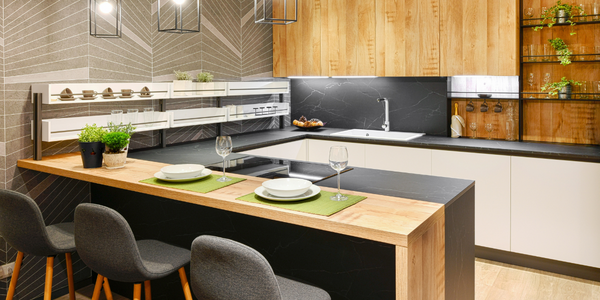Download PDF
Traeger Pellet Grills, LLC: Providing Connection and Community for Loyal Fans
Technology Category
- Application Infrastructure & Middleware - API Integration & Management
Applicable Industries
- Consumer Goods
Applicable Functions
- Sales & Marketing
The Challenge
Traeger Pellet Grills, a company that markets outdoor cooking grills, was looking to grow its e-commerce sales and make customer service more efficient and effective. They wanted to launch a live chat channel to provide an efficient and effective channel for customer service, increase e-commerce sales with a sales support channel, and protect and support a brand that has intensely loyal followers. The company had a website but it was not doing much e-commerce. The focus was on pointing people to their dealer network. However, they wanted to take a much more aggressive approach to direct selling.
About The Customer
Traeger Pellet Grills, LLC is a company that markets outdoor cooking grills. The company was founded in the early 1990s by the Traeger family and has its headquarters in Wilsonville, Oregon, and an office in Springville, Utah. The company’s products have been available across the country since 2009. The company has built an intensely loyal following since its grills were introduced in the early 1990s. The wood pellets provide unique flavor, and the grills have the flexibility to grill, bake, smoke, slow cook, braise, and barbecue. For nearly 20 years, the Traeger family marketed the grills in limited quantities—and only in the Pacific Northwest—from their headquarters in Wilsonville, Oregon. But five years ago, the company’s new owners began to take the products to the national market.
The Solution
Traeger Pellet Grills deployed a LivePerson solution three years ago, with Click to Chat and proactive chat invitations for both sales and customer service functions. Sales and customer service agents now field more than 2,400 live chat conversations monthly, and the channel has been an important factor in a 20 percent increase in average order values for the website. The company also added a personal touch to the sales and customer service experience by launching a live chat engagement channel. They researched several live chat providers and settled on LivePerson because of its comprehensive view of digital engagement and leadership in the industry. The LiveEngage platform went live with the opening of the center in November 2013.
Operational Impact
Quantitative Benefit
Related Case Studies.
.png)
Case Study
Improving Vending Machine Profitability with the Internet of Things (IoT)
The vending industry is undergoing a sea change, taking advantage of new technologies to go beyond just delivering snacks to creating a new retail location. Intelligent vending machines can be found in many public locations as well as company facilities, selling different types of goods and services, including even computer accessories, gold bars, tickets, and office supplies. With increasing sophistication, they may also provide time- and location-based data pertaining to sales, inventory, and customer preferences. But at the end of the day, vending machine operators know greater profitability is driven by higher sales and lower operating costs.

Case Study
Series Production with Lot-size-1 Flexibility
Nobilia manufactures customized fitted kitchens with a lot size of 1. They require maximum transparency of tracking design data and individual processing steps so that they can locate a particular piece of kitchen furniture in the sequence of processes.

Case Study
American Eagle Achieves LEED with GE LED Lighting Fixtures
American Eagle Outfitters (AEO) was in the process of building a new distribution center. The AEO facility management team decided to look at alternate options for lighting layout that could provide energy and maintenance savings. AEO would need a full-time maintenance employee just to replace burned-out fluorescent tubes.

Case Study
Revolutionizing Rodent Control
From pet- and child-safe traps, to touch-free and live-catch rodent control solutions, Victor continues to stay committed to producing superior products that meet the varying needs of today’s pest control professionals. And, with a long standing history supporting customers in the food processing, service, and retail settings, Victor knew that strict regulations were costing organizations thousands of dollars in excess overhead trying to manage their rodent-control solutions. Trap inspections in these environments are often difficult and time consuming, requiring personnel to manually check a trap’s status multiple times per day, amounting to over six hours of manual labor. Victor is looking for an innovative way to increase operational efficiencies with the use of technology.







